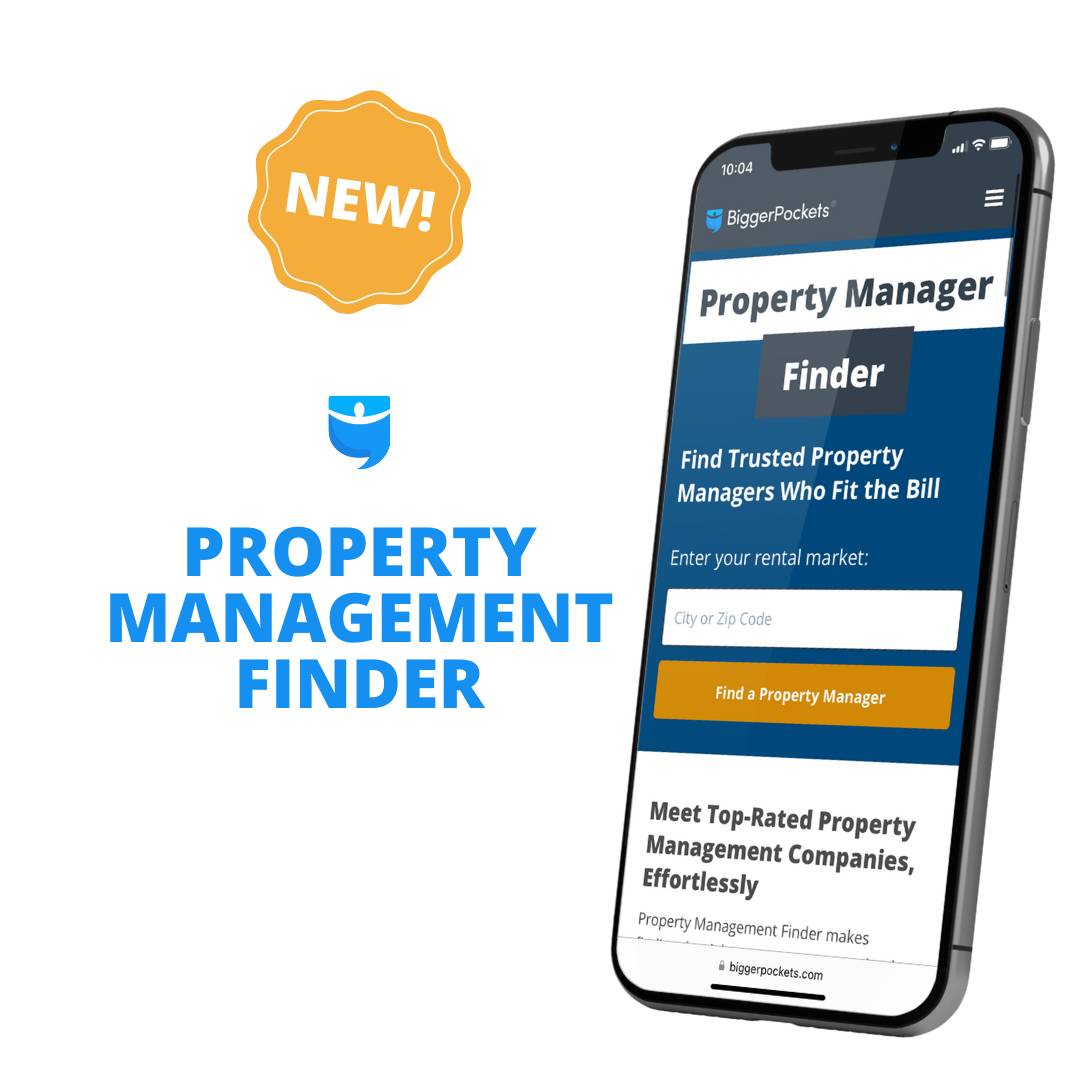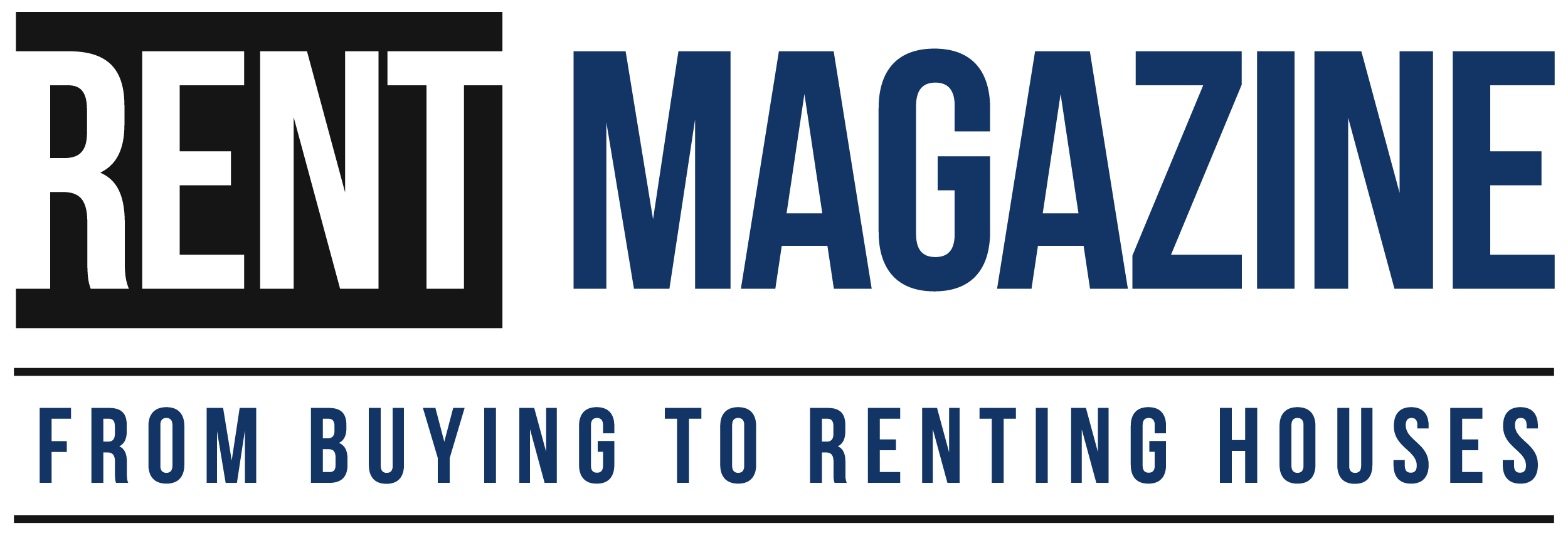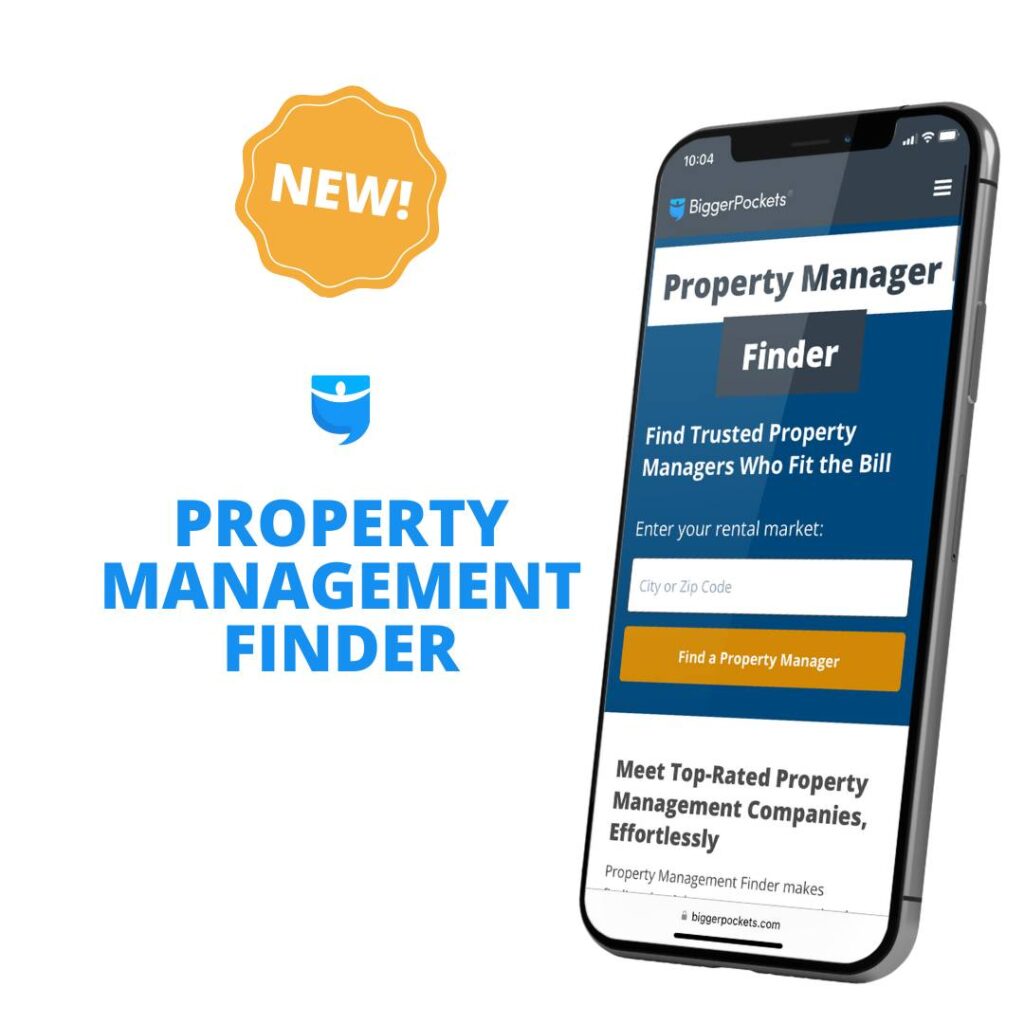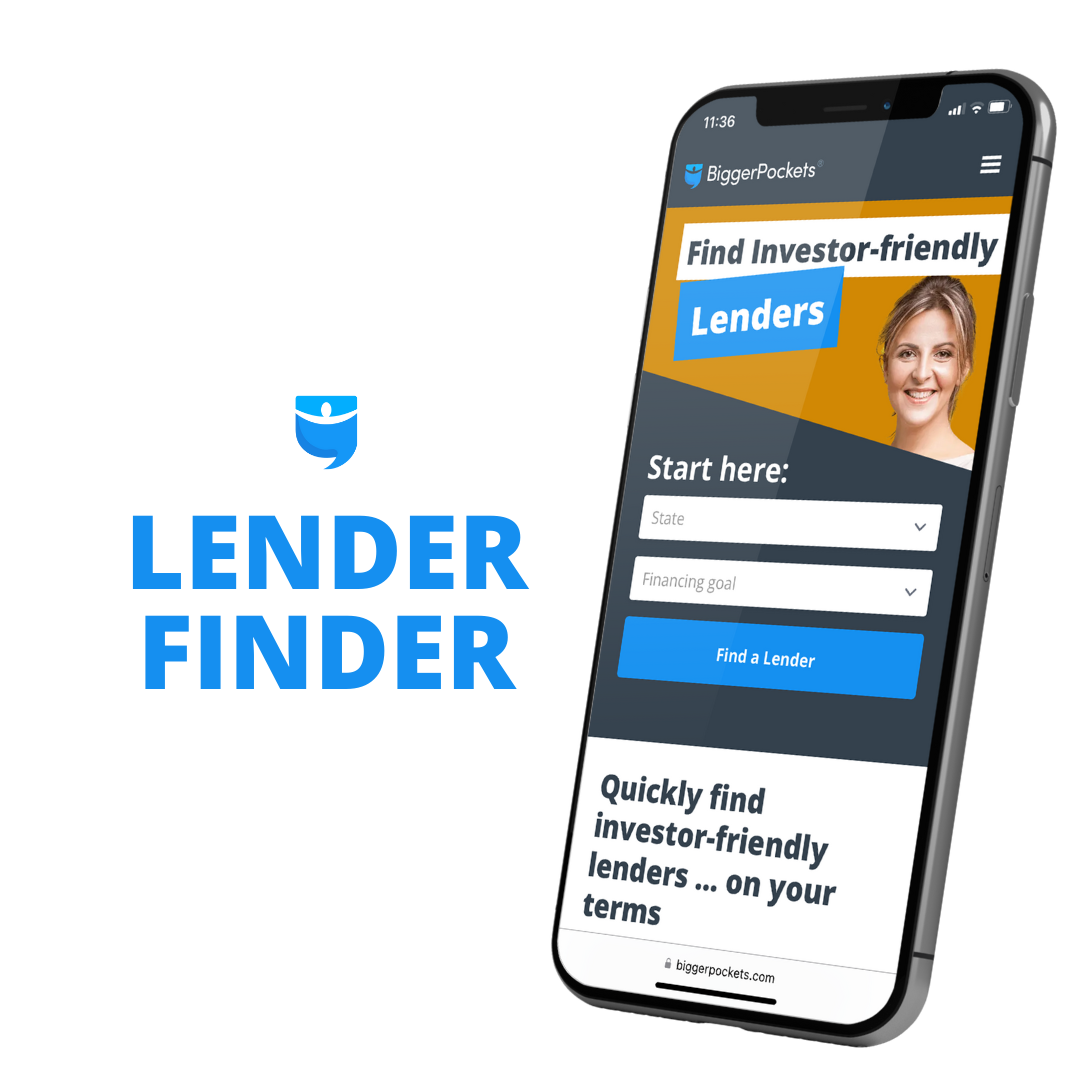This story was originally published at BiggerPockets.com
A very “good” problem many investors have is whether they should sell or rent their primary residence when it comes time to move out. I have been blessed with this problem over the last two months, and jumped back and forth as to what I think the best option is and ultimately decided to rent my primary residence.
Let me briefly set the scene here. Brian Carberry, editorial director at BiggerPockets, and I were in extremely similar circumstances over the last two months: making a tough decision about whether to sell or rent our primary residences after moving out. Brian decided to sell his property, and I decided to turn my home into a traditional long-term rental property.
Every investor is unique in the way that they invest in real estate. They have unique goals, unique variables in their local markets, unique personal financial circumstances, and so much more that ultimately factor into the decisions we make. Brian is not an idiot, though it may seem like he is for selling his primary residence, which could have been very easily converted into a cash-flowing long-term rental property. I would never try to make anyone feel bad about their decision, but I know Brian has very thick skin after years and years of supporting Philadelphia sports teams.
The Holes in Brian’s Logic
Brian is one of the smartest individuals I have come across in my professional career, but on this one, he took the easy way out instead of trying to maximize the opportunity that presented itself.
The equity position and cash flow present too much opportunity to sell. I have a 3% loan on my first investment property, and trust me, it is almost impossible to think of refinancing or selling at a rate well below the historic average for 30-year mortgages. A common phrase I live by is “you make your money when you buy.” Brian hit an absolute home run out of the park when buying his home in 2020 but only decided to take a ground-rule double at the selling table.
I completely understand the logic behind his analysis. He can immediately have $55,000 in net profit by selling or take eight years to see the money through his monthly cash flow. This is very linear, and a lot of different wealth-building opportunities included in owning rental properties were ignored in this analysis.
Let’s start with appreciation since I have a pretty good understanding of the growth Brian has earned over the last three years. Buying the property at $225,000 with a valuation of $300,000 means this property appreciated at an 11% rate year over year in the three years of ownership. This equates to $25,000 annually of unrecognized appreciation being unaccounted for.
From a return on investment (ROI) perspective, with the cash flow, Brian will be able to collect $1,950 a month. Putting 3.5% down on a $225,000 property comes out to $7,875 down to purchase the property, and $1,950 a month will produce $23,400 in annual cash flow. This is a 197.14% ROI.
I won’t even go into the numbers behind the tax benefits that are not accounted for as well. Having the ability to offset gains when it comes to tax season through mortgage interest, depreciation, and management/maintenance fee deductions will be extremely impactful over the duration of keeping the property.
Though the benefits of tax deductions were overlooked in the analysis, I will credit Brian’s knowledge of the tax code to offset the capital gains on the sale utilizing the Section 121 exclusion to be exempt from up to $250,000 in capital gains from the sale of his home. Not having any prior experience as a landlord when it comes to tax season certainly does not help either, as I have seen these benefits on my last two years of tax returns being a landlord.
As I mentioned, Brian and I had a similar experience, but made different decisions. Here’s why I chose to rent for long-term growth rather than sell like Brian did.
Purchasing My Second House Hack
I bought my property in June 2022 as a primary residence in a very nice neighborhood located in Northwest Colorado Springs, Colorado. I was moving out of a primary residence on the other side of the city that I had purchased in May 2021; I house hacked, moved out, and converted it into a traditional long-term rental property.
I was cash flowing while living in my first house hack, cash flowed even more when I moved out, and I kept my personal monthly expenses as low as a 24-year-old possibly could save up a down payment for my second house hack.
Purchasing this property came with a lot of challenges leading up to my closing date in June 2022. I was under contract for two other properties that I had paid nonrefundable inspections and appraisals on, and rates were rising faster than anyone could’ve possibly anticipated. I was feeling defeated and ultimately at a complete loss after purchasing my first property overpriced at a 3% rate the year before.
But I had finally put pen to paper and sold my soul into another 30-year mortgage—more than doubling the existing debt I already had in conventional loans.
This home is a three-bed, 3.5-bath, 1,600-square-foot townhome that had the exact same layout as the property I was moving out of. With rates and values increasing, I knew I would not have cash flow while I lived in the property while I house hacked, but that did not stop me from taking my next swing.
This home came with a $2,500 seller concession to replace the carpet that was likely original to when the home was built in 1993. It required a little bit of work, but I had such a great relationship with one of my tenants at my first house hack that I actually had zero days of vacancy during my move and rented out my two extra bedrooms from day one.
I was able to do all the work around the house while my tenants lived in the property, replacing the entire main floor with brand-new luxury vinyl plank flooring and installing a door to the basement (where I was living) to make the home a true three-bedroom home.
I only put 5% down on the property ($17,500) and had budgeted roughly $6,000 worth of repairs when under contract. As I mentioned, the year before, I was locked in for a 30-year rate of 3% on my first home, but this time around, I was at 5.5%.
From a Traditional House Hack to Family and Friends
My intention was to move out of this home in three to five years after I had purchased it, but my clock had sped up faster than anticipated. I had a relatively traditional house hack for the first year, bringing a tenant from my first house hack and finding a second roommate to offset my living expenses.
Being single and 24 had its pros and cons, and my pros were certainly my reason to scale my portfolio without the burden or impact affecting anyone but me.
Things settled down. I met the love of my life and moved in with my girlfriend, Erin. If you did not meet Erin at BPCON last year, I will almost certainly guarantee you will meet her this year, as she is the most outgoing and generous individual I have been blessed to have in my life.
My traditional house hack tenants both gave me notice to move out, and it was just Erin and me taking on my mortgage for two months. One of my closest friends took a gap year, and I decided to rent out one of my vacant rooms, creating what I like to call a “luxury house hack.”
Did this create the same cash flow I was receiving before? Absolutely not. But after two years of living in my basement, I wanted to enjoy being in my own home while still taking advantage of the benefits of house hacking, with Erin and my best friend from home paying their share of rent to still offset my living expenses.
Erin was offered her dream job back in my home state of Pennsylvania, and we started to pack our bags and talk about the future of the home we were moving out of in Colorado. Since I have only owned and lived in the home for two years, the decision came down to selling the property or renting as a traditional long-term rental property.
Why I Made the Decision to Rent the Property
My goals around real estate are to create long-term wealth growth while not overleveraging and keeping as much ownership as possible in my portfolio.
I decided to keep my property as a rental for several reasons.
1. I am in this for the long haul
My plan was never to sell, and I still hold true to that feeling now that I am creeping up on my two-year anniversary of owning this property. I am not investing in real estate to replace my W-2 income, build a ridiculously large empire, or take on any unnecessary risk to potentially increase my return.
I am extremely patient and in no immediate rush to see the benefits of the portfolio I have started. I am investing in real estate to supplement my retirement income and will do whatever I can to teach the generations after me how to operate a rental portfolio and provide what I believe to be the opportunity of a lifetime.
Call me crazy, but this property is actually cash flow negative, costing me roughly $300 a month to keep factoring in all the expenses, including property management fees. Before you think I am a complete idiot for keeping a property that produces negative ROI, I have seen rapid appreciation increases in my less than two years of owning this property, creeping just under 9% in total growth.
I recognize there are numerous factors in that number, but let’s just say the property continues to appreciate at a rate of 4.5% annually. At this rate, the value of this property will be worth just under $1.3 million when my mortgage is paid off. I will certainly pay $3,600 annually to earn a 4.5% appreciation rate on a property starting at the purchase price of $345,000.
My outlook is over a 30-year horizon on both of my properties. It is too foggy to try and give hypothetical scenarios on doing a HELOC or refinance in the future, so I like to look at the next 30 years assuming I do nothing to the debt on the properties. I know if I do not touch these properties (sell or refinance), I will have them both paid off when I am 52 and 53 years old, respectively.
I also know that median rent increases in the 21st century have averaged at an annual rate of 3.15%, and am a firm believer in this number continuing to stay stable and rise over a very extended period.
If the rate of 3.15% holds true, and my starting rental rate is $2,000, my paid-off townhome valued at $1.3 million will bring in a net monthly income of $5,071.16. That is over $60,000 a year alone on just one townhome I decided to keep and not try to leverage the equity any further.
To bring this full circle as best as I can, my initial $17,500 investment will generate a 247.74% return once the loan is paid off, only considering monthly cash flow with a rental rate increase of 3.15% year over year. The appreciation and tax liability reduction I will just consider as the icing and cherry on top at this point. If you’re still calling me crazy, you may be right, but I think it is certainly more crazy to sell!
2. My monthly expenses are extremely low
It would not be fair to explain why I am keeping a property at a negative net income, talking about how my monthly expenses are low, and not explaining why my expenses are low.
First off, the net gain from my first house hack is almost equivalent to the net loss I am taking monthly from my second house hack. I essentially view my small rental portfolio as breakeven monthly when it comes to looking at cash flow, and will certainly be negative at the end of the year when factoring in maintenance expenses and vacancy rates.
I can stomach a loss on this for a few different reasons that I know are not available to every individual, but I challenge you to think about what truthfully is a want and what is a need.
At the time of writing this article, I have done a few things recently to dramatically decrease my monthly expenses.
3. For the next few months, we are living at my parents’ house
I am absolutely filled with pride knowing that I own two homes in Colorado but temporarily using my childhood bedroom as an office. I’m sure you can feel my sarcasm through the screen.
In all seriousness, knowing we are here for a few months to add to our savings for a down payment, we are gladly swallowing our pride, knowing that we are creating options in the future to expand what will become our rental portfolio moving forward. This is a sacrifice I am sure not many families are willing to make, but I will gladly share in a few months what the sacrifice led to.
4. We became a one-car family
I made the bonehead decision to buy a new car off the lot after I totaled my car in Colorado right after closing on my first house hack, thinking my finances had skyrocketed and it was time to enjoy the high life. My job is remote, and I simply do not need a vehicle during normal business hours unless there is a one-off appointment or scheduling conflict.
Getting rid of a car payment, insurance payment, gas payments, and reducing our maintenance liability concerns, it was an absolute no-brainer to only have the need for one car moving forward. When the decision was made to keep the rental property at a loss, we asked ourselves: Should we keep the car or keep the home?
We knew they would create an almost identical expense for us monthly. Needless to say, we did not think about this decision too hard, had a quick laugh about depreciating assets versus appreciating assets, and came to the conclusion that we would be more than happy to keep our home instead of our silly car.
5. The rinse-and-repeat effect
I am by no means claiming to be an expert on leveraging debt and reducing your housing expenses through real estate, but I can confidently say that I have done just that with my two rental properties in the last three years. I know that we can absolutely do it, and the last three years gives me the confidence to do it again.
We will be on the hunt for the next house hack, and with both of us living this investment strategy for the last two years, I know that we can do it and do it even bigger. The market we are in will allow us to look for a smaller multifamily property to house hack this time around, and though the door count gets larger, we are ready to try to flex our muscles onto something a bit larger.
We are now in a position where we have almost entirely wiped out our monthly expenses, increased our financial positions through our professional careers, and consistently added to a savings account for our next primary residence. This is not the quickest way to scale and definitely not the sexiest way to improve your financial position, but it is a way for us to keep 100% ownership in our portfolio, continue to learn valuable lessons on what we are capable of doing as DIY landlords, and keep us relatively insulated from numerous factors that we simply just don’t know at the stages we’re at in our investment journey.
Who Is Right: Brian or Me?
Trick question. I think Brian is 100% right in his reasoning to sell his property, collect the proceeds to impact his life immediately, and, I’m sure, invest a large chunk into the future for his wife and kids. I also think I am 100% right in my decision to sit on the equity and fully anticipate not putting a dollar into my personal life for the foreseeable future.
That said, I would love for you to poke holes into my theory because, again, I think I am right. I fully recognize that at 25 years old, I have an abundance of learning experiences that will certainly come my way for better and for worse as time goes on, but soaking up a variety of different angles will only positively impact my decisions for the better.
What it boils down to is that I do not need immediate access to capital, and I have created a very small system that works for us. It is repeatable, comfortable, and gives us the ability to scale at our own pace while only very subtly impacting our personal lives. I have had a mountain to climb to get to where I am today, and see no reason to try and shake things up as things currently stand in my investments, and much more importantly, in my personal life.
Final Thoughts
When I invest, the numbers always need to make sense on paper, and I will never consider a property without doing my analysis. As I’ve grown a bit older, I’ve come to realize the importance of impacting lives beyond my own. This added layer of responsibility requires much more careful planning, for which I am deeply grateful as I shape my decisions moving forward.
Find Freedom in Property Management Partnerships
Property Management Finder helps you discover reliable property management partnerships and make confident hiring decisions.

Note By BiggerPockets: These are opinions written by the author and do not necessarily represent the opinions of BiggerPockets.



